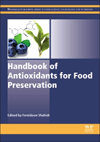Anti-inflammatory diets are trendy, and some of my friends are avoiding dairy because they’ve heard that it causes inflammation. According to Greg Miller, chief science officer for National Dairy Council, “The current scientific evidence suggests that the opposite may be true.”
Inflammaging is a chronic low-grade inflammatory state often seen in the elderly. It is associated with many aging diseases, including Alzheimer’s disease, cardiovascular disease, Type 2 diabetes and cancer.
Minimizing inflammation, therefore, is one key to healthy aging. Newer research indicates that certain dairy foods, including whey protein and yogurt, might actually help fight inflammation.
Whey protein
At 40, Tom Brady seems to defy aging in his NFL career. He advocates an anti-inflammatory lifestyle that includes proper hydration and healthy nutrition. Brady’s diet includes his proprietary TB12 protein, a 99% pure whey protein isolate powder. According to an article in The Boston Globe (https://tinyurl.com/yckhdhjd), Brady will have “up to three or four scoops of protein powder” in a day. Brady recommends consuming his whey protein supplement within 15 to 30 minutes following a workout.
A 2016 study (https://tinyurl.com/y77haae2) found that “whey administration may attenuate exercise-induced oxidative stress and inflammation.” Consuming whey protein after exercise also helps to build muscle and maintain a healthy weight, both critical to healthy aging.
“Research on the benefits of consuming whey protein for healthy aging continues to grow. In a recent study (https://tinyurl.com/ybu8g8o2), physical activity plus supplementation with whey protein, amino acids and vitamin D improved functionality and decreased inflammation in sarcopenic elderly,” said Veronique Lagrange, strategic development consultant, American Dairy Products Institute.
Fermented dairy foods
Studies have also linked anti-inflammatory effects with consumption of fermented dairy foods by women and/or younger adults.
“A recent study (https://tinyurl.com/ycogsozd) showed that regular consumption of conventional low-fat yogurt reduced chronic inflammation in women. Another study (https://tinyurl.com/y85yrrs3) showed that short-term consumption of both low- and high-fat dairy as part of a healthy diet did not adversely affect inflammation,” said Chris Cifelli, Ph.D., vice president of nutrition research for National Dairy Council.
A recent review of 52 clinical trials (https://tinyurl.com/y739byhj) explored the role of dairy products and inflammation. It found that consumption of dairy products was inversely associated with low-grade systemic inflammation.
“This is one of the first studies that has focused mainly on inflammation and dairy, and as the authors acknowledge, it has important limitations,” he said. “Nevertheless, dairy, and particularly fermented dairy, is associated with anti-inflammatory properties.”
Cifelli provided some recommendations for those pursuing healthy aging.
“Consumers need to remember that combating chronic inflammation involves more than individual nutrients or foods,” he said. “It is about having a healthful eating pattern and lifestyle, as well as maintaining a healthy weight, among other factors. The available research seems to indicate fat-free and low-fat dairy foods can be part of such a lifestyle.”
Milkfat
While many diets focus on consumption of low-fat dairy products, the science on the health benefits of full-fat dairy continues to grow. Preliminary research indicates a benefit of milkfat in combating inflammation, according to an article (https://tinyurl.com/ydayo7mm) in Splash!, the newsletter of the International Milk Genomics Consortium. The research suggests that not all saturated fats are equally harmful, and that components of milkfat — including milkfat globule membrane, CLA, phospholipids and trans-palmitoleic acid — might have anti-inflammatory effects.
Inflammation is a complex topic, and research on the subject is still at an early stage. The dairy industry should actively support research and combat myths about dairy and inflammation.








